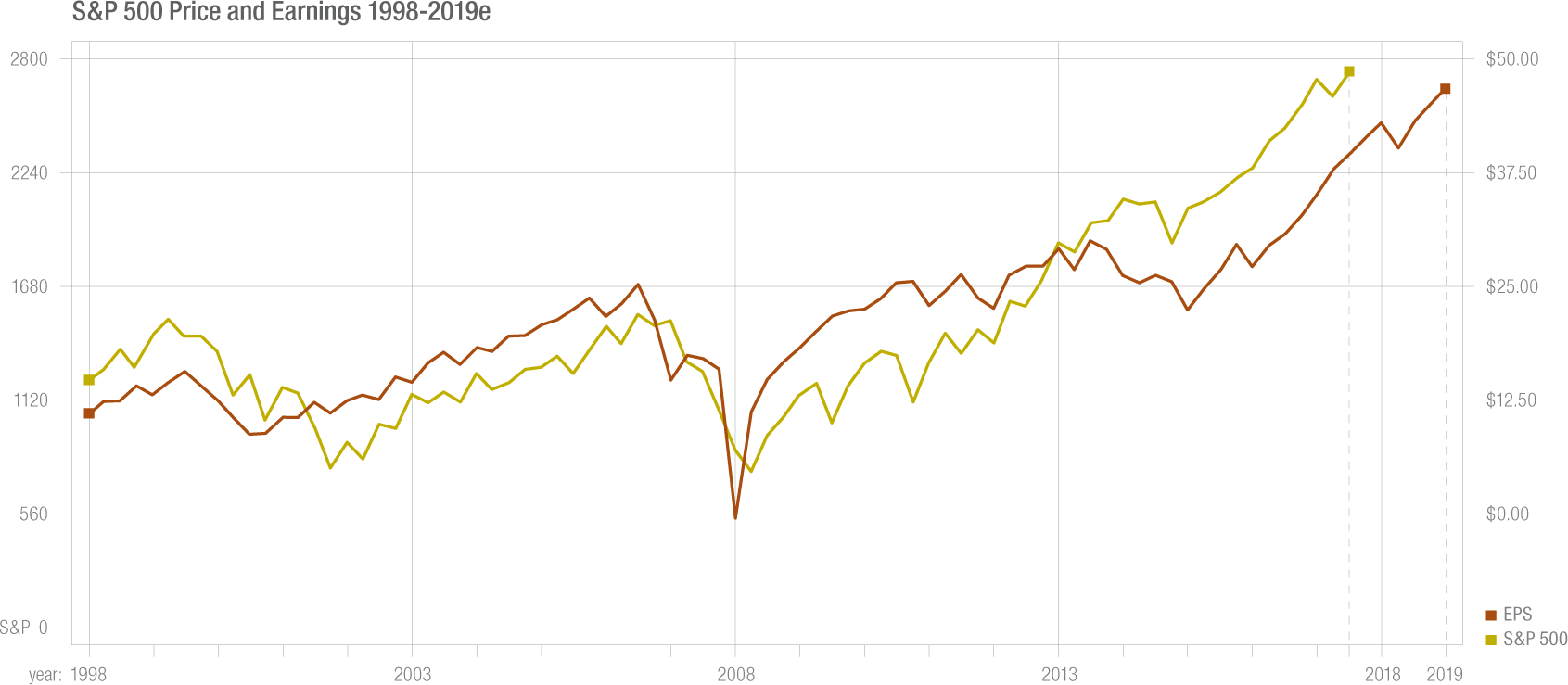Login
Perspective During Volatile Times
The pain from losing money in the markets is often greater than the emotional reward of earning money in the market. The fear of potential loss drives people to hold cash. But cash isn’t riskless — the spending value of cash is eroded by inflation. Take the long view of the markets when volatility hits.
On a day-to-day basis, the markets move in random ways. But there are trends that drive long-term performance. For the stock market the biggest influence is corporate earnings. For the bond market the biggest influence is inflation.

The Stock Market Moves With Earnings
Over time the stock market will move with the direction of earnings, although any given day the market could be up or down randomly. In the chart above, the returns of the S&P500 are shown in blue. The years when the returns are negative are during recessions, when corporate earnings decline.
For the bond market, the negative years occurred when there was an increase in interest rates, usually caused by inflation or fear of inflation.
When the emotional fear of loss becomes overwhelming, it can be helpful to fall back on the numbers to keep perspective. During stock market volatility, do an internet search to see if earnings are still growing for the S&P 500. (Google search for S&P 500 earnings—it is the bellweather index for the stock market). When the earnings growth rate declines, the stock market usually declines too. Small changes, small market impact. The big declines commonly happen when the year-over-year earnings growth is actually negative.
The Bond Market Cares About Inflation ... And Safety
For the bond market, watch inflation. The inflation rate is currently 2.0 percent which is historically low. We think the biggest risk to drive inflation higher is the tariff and trade wars that are developing. We would worry if inflation reaches 3.0 percent because of the negative impact it would have on consumers. Spending more money to buy an item now which cost less last year is a drag on productivity and growth.
Lastly, keep track of the initial investment you make rather than the highest value the account has reached. It helps to keep the perspective of what your portfolio has earned from the beginning rather than watching the short-term volatility, which has a way of playing with our emotions.
Source of return data: New York University, Stern School of Business, Aswath Domadoran


